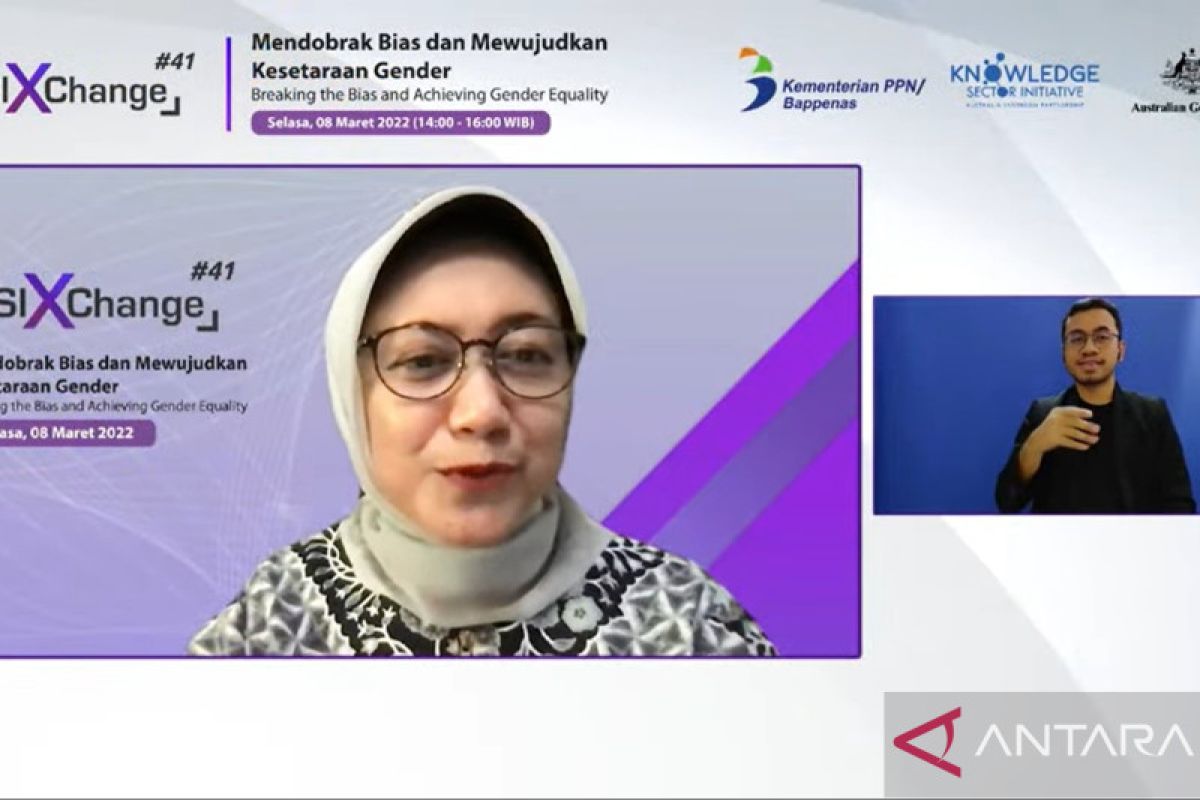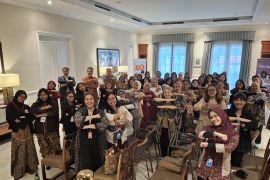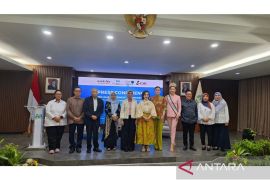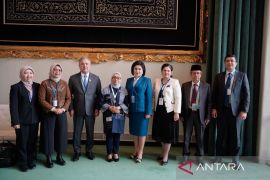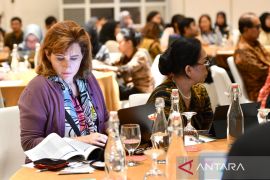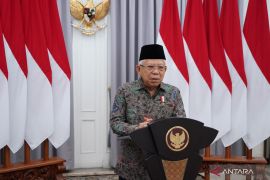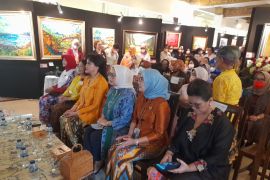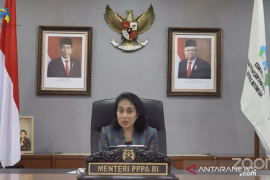This has become our collective challenge to improve our nation's performance amid other nations and several challenges that come up.Jakarta (ANTARA) - Indonesia's inclusivity index is still low in terms of equal opportunities for people with disabilities and gender equality, an official from National Development Planning (PPN) Ministry and National Development Planning Board (Bappenas) has said.
"Indonesia's inclusivity index, when compared with various nations not just globally but also in ASEAN, is relatively low," Social and Poverty Mitigation Expert Staff at the ministry Vivi Yulaswati noted during the ‘Destroying Bias and Realizing Gender Equality’ webinar on Tuesday.
Indonesia ranks 125, or below neighboring countries such as the Philippines, Vietnam, Singapore, and Thailand, on the index, she informed.
The inclusivity index ranking is calculated based on a holistic measurement of inclusive policy development focused on race or ethnicity, religion, gender, and disabilities equality, she informed.
"This has become our collective challenge to improve our nation's performance amid other nations and several challenges that come up," Yulaswati said.
The low rank should serve as an important reminder for the nation to continue to bolster accessibility for vulnerable groups, including people with disabilities, to realize inclusive growth, she added.
According to Yulaswati, the nation should mainstream the issue of gender equality, disabilities, and social inclusion (GEDSI) in all policies or people's activities.
This is because there are still several problems, for example, many women do not have a safe working environment, she explained.
According to the data from the March 2021 National Workforce Survey (Sakernas), only 1.13 percent of women work in a safe or healthy environment, she noted.
In fact, there is a pay gap between women and men in work environments, both in villages and cities, she said.
Moreover, only 113 or 548 regions across Indonesia have regional regulations concerning people with disabilities, she pointed out.
Twenty of them are provinces, 27 of them are cities, and 66 of them are districts, she informed.
In addition, according to the data from the 2021 National Social Economic Survey (Susenas), there is still a significant gap between the education level of women and men, she said.
For instance, the number of women who never attended school is 2.10 percent higher than men, she highlighted. Meanwhile, the number of women who never finished primary school is 2.34 percent more than men, she added.
However, the number of women who graduated from universities is 10.06 percent, or higher than men (9.28 percent), Yulaswati said.
Resolving GEDSI requires collaboration starting from the lower education level to understand the fulfillment of the rights of women and people with disabilities, she stressed.
The COVID-19 pandemic has led to a digital and technological transformation that can become key to not only expedite policy partiality, but also fulfill these groups' rights, she added.
Related news: Gov't's role necessary for handling gender discrimination: minister
Related news: Plan Indonesia calls for gender equality
Related news: Multi-party synergy becomes strength to realize gender equality
Translator: Hreeloita S, Fadhli Ruhman
Editor: Sri Haryati
Copyright © ANTARA 2022
